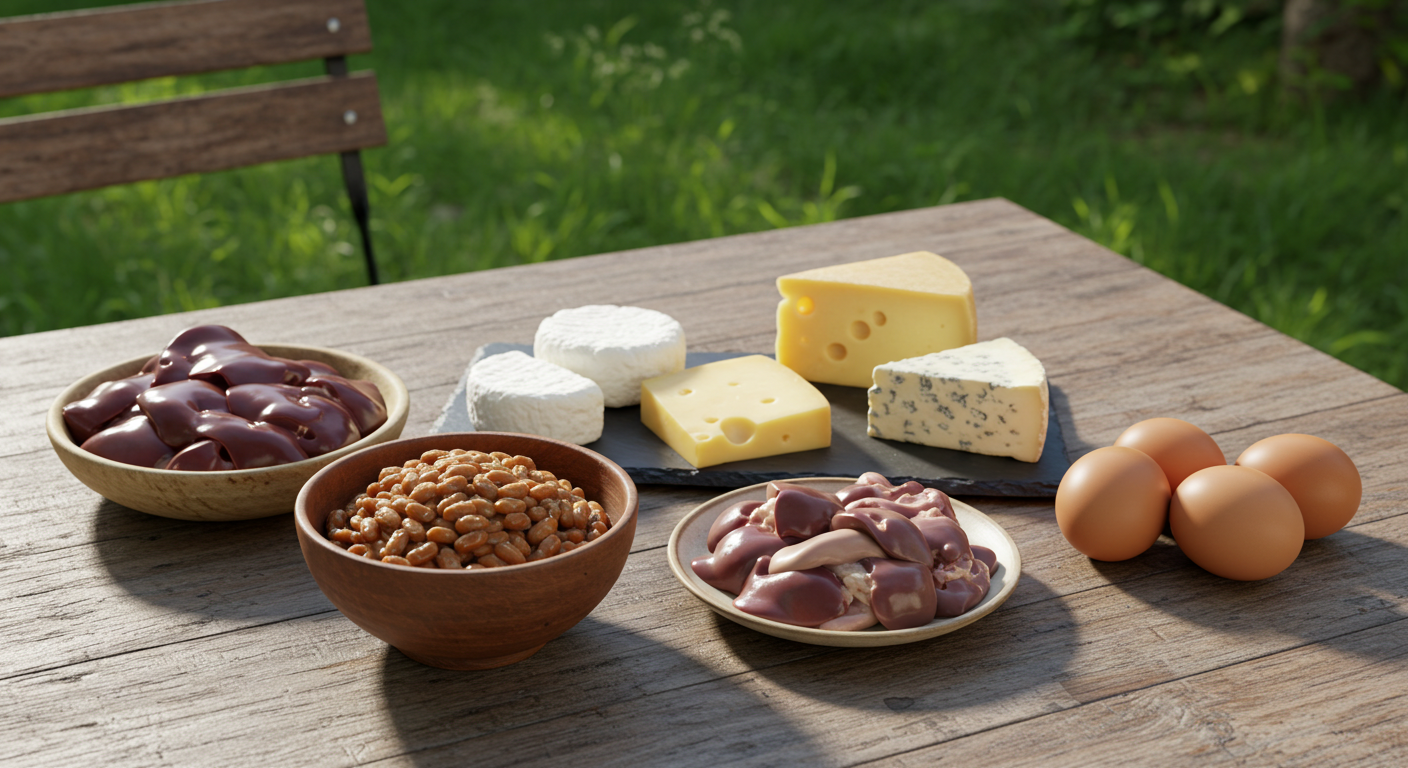Dr. Kumar’s Take:
This large study from the Netherlands found that people who ate more vitamin K2 (menaquinone)—mostly from fermented foods like cheese—had fewer heart attacks, lower risk of dying from heart disease, and less calcium buildup in their arteries. Interestingly, vitamin K1, which comes from leafy greens, didn’t show the same benefits. This tells us that vitamin K2 may play a special role in keeping our blood vessels healthy and flexible.
Key Takeaways:
✔ Higher vitamin K2 intake was linked to a 57% lower risk of dying from heart disease.
✔ K2 was also tied to lower all-cause mortality and less severe artery calcification.
✔ Vitamin K1 did not show any protective effect in this study.
Actionable tip:
Try including more fermented cheeses like Gouda, Brie, or Edam, and pasture-raised eggs in your weekly diet to boost your vitamin K2 levels naturally. If you can tolerate natto, this may be the best way to naturally improve Vitamin K2 intake as it’s the highest know food source. You can also suppplement with 180-375 mcg daily of vitamin K2 mk7 form.
Brief Summary:
The Rotterdam Study followed nearly 5,000 adults aged 55 and older for over 7 years. Researchers looked at how much vitamin K1 (from vegetables) and vitamin K2 (from animal and fermented foods) participants ate. They then tracked heart attacks, deaths from heart disease, and calcium buildup in the arteries. People who consumed the most vitamin K2 had significantly lower risks of heart-related events and severe aortic calcification. No such link was seen with vitamin K1.
Study Design:
This was a population-based prospective cohort study involving 4,807 Dutch men and women aged 55 and older with no history of heart attacks. Participants completed food frequency questionnaires and were tracked for 7.2 years. Researchers measured their intake of vitamin K1 and K2 and followed their health outcomes, including heart attacks, death from coronary heart disease, all-cause mortality, and aortic calcification assessed by X-ray.
Results:
- CHD mortality was 57% lower in the group with the highest K2 intake (RR = 0.43; 95% CI: 0.24–0.77).
- All-cause mortality was 26% lower in the highest K2 group (RR = 0.74; 95% CI: 0.59–0.92).
- Severe aortic calcification was 52% less common in the highest K2 group (OR = 0.48; 95% CI: 0.32–0.71).
- Vitamin K1 (phylloquinone) showed no significant effect on any of the measured health outcomes.
How Vitamin K2 Works for Heart Health
Vitamin K2 helps activate proteins like matrix Gla protein (MGP) that prevent calcium from sticking to the walls of arteries. Without enough K2, MGP remains inactive, and calcium can build up where it shouldn’t—leading to hardening of the arteries, or atherosclerosis. Over time, this increases the risk of heart attacks and stroke.
K2 is different from K1 because it travels in LDL particles, allowing it to reach tissues like arteries more effectively.
Related Studies and Research
Highlights findings from the Rotterdam Study on vitamin K2 and its potential to reduce cardiovascular mortality. – Presents population-based evidence linking higher K2 intake to lower rates of heart disease–related death.
Explores how vitamin K2 may influence heart disease outcomes, focusing on arterial stiffness and calcification. – Core summary of K2’s impact on vascular function and calcification mechanisms.
Reviews the connection between vitamin K2 and reduced arterial calcification, including clinical data. – Synthesizes trials showing K2’s efficacy in slowing or reversing artery calcification.
Meta-analysis showing vitamin K’s effect on arterial calcification progression in different populations. – Aggregates trial data quantifying K supplementation’s influence on calcification scores.
Examines how warfarin use is linked with increased arterial calcification risk due to vitamin K inhibition. – Explores the unintended vascular side-effects of long-term anticoagulant therapy.
Frequently Asked Questions
What foods are high in vitamin K2?
Cheese (especially Gouda, Edam, Brie), eggs, pasture-raised meats, and fermented foods like natto are great sources of K2.
Is K1 the same as K2?
No. Vitamin K1 (phylloquinone) is found in green vegetables and supports blood clotting. Vitamin K2 (menaquinone) helps move calcium into bones and away from arteries.
Can I take vitamin K2 as a supplement?
Yes, MK-4 and MK-7 are common supplement forms. MK-7 (from natto) has a longer half-life and may be more effective for artery health.
Should I stop eating leafy greens if K2 is better?
Not at all! Leafy greens are healthy for many reasons. But to support your arteries, you might consider adding more K2-rich foods as well.
Conclusion
This study shows strong evidence that vitamin K2 helps prevent heart disease and artery calcification. If you’re over 50 or concerned about cardiovascular health, making room for fermented cheeses and egg yolks might be a smart move.


